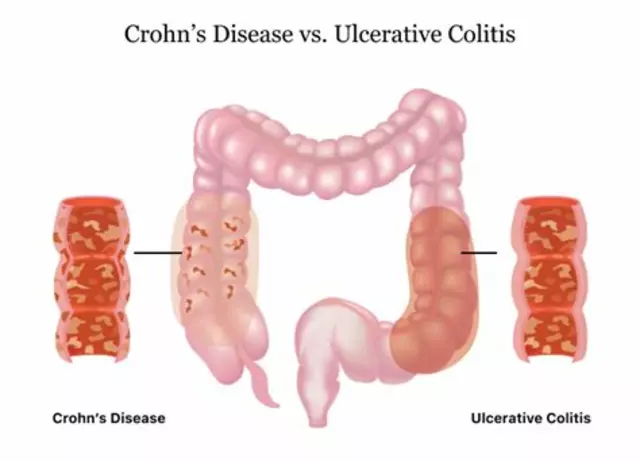Understanding the Importance of Vaccinations During Pregnancy
As a soon-to-be mother, I know how important it is to take care of our bodies during pregnancy. One way to ensure the health and well-being of both mom and baby is through vaccinations. During pregnancy, our immune system is weakened, making us more susceptible to certain illnesses. Vaccines can provide protection for both mom and baby against these harmful diseases. In this section, I will discuss the importance of vaccinations during pregnancy and how they benefit both mother and baby.
Vaccinations during pregnancy are designed to protect the mother from contracting dangerous diseases while also protecting the baby by transferring antibodies through the placenta. These antibodies help protect the baby during its first few months of life when their immune system is still developing. By receiving the necessary vaccinations during pregnancy, we can help prevent potentially harmful diseases such as whooping cough and influenza from affecting our little ones.
Common Vaccinations Recommended for Pregnant Women
When I first learned about the vaccines recommended for pregnant women, I was surprised to find out that there are only a few key vaccinations to consider. The most commonly recommended vaccines during pregnancy are the flu (influenza) vaccine and the Tdap (tetanus, diphtheria, and pertussis) vaccine. It's important to note that not all vaccines are safe to get during pregnancy, so it's crucial to consult with a healthcare professional regarding any additional vaccinations you may need.
The flu vaccine is highly recommended for all pregnant women, as the flu can cause severe complications for both mom and baby. The flu vaccine is safe to get at any point during pregnancy and is especially important if you are pregnant during flu season. The Tdap vaccine is typically given during the third trimester of pregnancy and is crucial in preventing whooping cough in newborns. Receiving the Tdap vaccine during pregnancy has been shown to be over 90% effective in preventing whooping cough in infants during their first few months of life.
Addressing Common Concerns About Vaccines and Pregnancy
As a pregnant woman myself, I understand the concerns and fears that many of us have regarding vaccinations during pregnancy. One common concern is the safety of vaccines for both mother and baby. It's important to know that vaccines recommended during pregnancy have been thoroughly researched and deemed safe for both mom and baby by healthcare professionals. Any potential side effects from these vaccines are typically mild and short-lived.
Another concern is the potential for vaccines to cause harm to the developing fetus. It's important to note that studies have shown no increased risk of birth defects, miscarriage, or other complications from receiving the recommended vaccines during pregnancy. In fact, vaccines are specifically designed to protect both mother and baby from harmful diseases that can cause severe complications during pregnancy and infancy.
Discussing Vaccinations with Your Healthcare Provider
As a pregnant woman, it's essential to have open communication with your healthcare provider about any concerns or questions you may have regarding vaccinations. Your healthcare provider can provide you with accurate information about the benefits and potential risks of each vaccine and help you make informed decisions about which vaccines are right for you during your pregnancy.
When discussing vaccinations with your healthcare provider, be sure to ask about any potential side effects or risks associated with each vaccine, as well as the best time to receive them during your pregnancy. It's also essential to inform your healthcare provider of any allergies or pre-existing conditions you may have that could impact your ability to receive certain vaccines.
Protecting Your Baby After Birth: Vaccinations for Newborns and Family Members
Once our little ones arrive, it's crucial to continue protecting them from harmful diseases through vaccinations. Ensuring that your baby receives the recommended vaccines on schedule is key to their overall health and well-being. It's also important for family members and caregivers to be up-to-date on their vaccinations, as they can potentially spread harmful diseases to your newborn.
As a mom-to-be, I know how much we want to protect our babies from any harm. By staying informed about the importance of vaccinations during pregnancy and following the recommended vaccination schedule for our newborns, we can help keep our little ones healthy and safe from potentially dangerous diseases.




Gary Tynes
Congrats on the bump stay healthy and get that flu shot
Marsha Saminathan
First off, let me say that being proactive about vaccinations during pregnancy is one of the smartest moves a soon‑to‑be mom can make, and it’s absolutely wonderful that you’re diving into this topic. The flu vaccine, for example, acts like a shield that not only protects you from those nasty flu viruses but also hands over a stash of antibodies to your baby, giving the little one a head start in life. Then there’s the Tdap shot, which is essentially a superhero cape against whooping cough – a disease that can be brutal for newborns whose immune systems are still getting their bearings. Studies have shown that when moms get the Tdap in the third trimester, the newborns enjoy a protection rate of over ninety percent during those crucial first months.
These vaccines have been rigorously tested and are certified safe by the CDC and WHO, so you can rest easy knowing you’re not taking a gamble. Side effects are usually mild-think a sore arm or a low‑grade fever-and they pass quickly, especially when compared to the severe complications that flu or pertussis can cause during pregnancy.
Moreover, staying up‑to‑date on vaccinations isn’t just about personal health; it’s a public health duty. When more pregnant women get vaccinated, we see a ripple effect that lowers community transmission rates, protecting vulnerable populations like the elderly and immunocompromised.
It’s also worth noting that the timing of these shots matters. The flu vaccine can be given any time during the flu season, while the Tdap is optimally administered between 27 and 36 weeks gestation to maximize antibody transfer.
Don’t forget to bring up any worries you have with your OB‑GYN-they’re there to guide you through the best schedule and address any myths you might have heard.
And while we’re at it, encourage your close family and caregivers to stay vaccinated too; they’re the ones most likely to be in close contact with the newborn, so their immunity forms another layer of protection.
All in all, the evidence is crystal clear: vaccinations during pregnancy are a win‑win, safeguarding both the mother and the baby, and they’re a cornerstone of a healthy start to life.
Justin Park
🤔 It's fascinating how the maternal immune system adjusts during gestation, reallocating resources while still maintaining vigilance against pathogens. The concept of passive immunity-where antibodies cross the placenta-highlights an elegant evolutionary strategy, ensuring the neonate is equipped to face the microbial world before its own adaptive system matures. 🍼 In practical terms, this is why the Tdap vaccine, administered in the third trimester, yields such impressive protection rates against pertussis in newborns. Likewise, the seasonal influenza vaccine offers dual benefits: it shields the mother from severe flu complications and endows the infant with a temporary immunological safety net. Of course, timing is crucial; optimal windows maximize antibody titers at birth. 🚼
Herman Rochelle
Remember, the goal is a healthy pregnancy and a robust start for the baby; getting the flu and Tdap shots is a proven path to that.
Stanley Platt
Indeed, the data corroborates the safety profile of both the influenza and Tdap vaccines when administered during gestation; the incidence of adverse events remains negligible, while the seroconversion rates are substantial, thereby conferring passive immunity to the neonate. Moreover, professional societies-including the CDC, ACOG, and WHO-recommend these immunizations unequivocally, underscoring their public‑health significance. It is imperative that expectant mothers engage in informed discussions with their obstetric providers to align vaccination timing with trimester‑specific guidelines, thereby optimizing antibody transfer. :)
Alice Settineri
Okay, listen up-if you’re still on the fence about getting the flu jab because some random blog said it’s risky, let me cut through the noise: the vaccine is safe, it’s effective, and it’s the smartest move you can make for your baby’s first months. Don’t let fear‑mongering hold you back; just roll up your sleeve and get it done.
nathaniel stewart
Im super excited you’re looking into this it’s way important to keep both mom and baby safe the flu vacine is totaly safe and it helps protect the little one when they’re born 🙌 dont worry about side effects they’re usually mild and short lived
Pathan Jahidkhan
The very notion of prophylaxis in gestational physiology is not merely a medical recommendation but an existential affirmation of our species’ continuity; yet, the layperson’s reticence to embrace immunization-rooted in a paradoxical blend of ancestral fear and modern misinformation-serves as a tragicomic tableau. In the end, however, the empirical record, unadorned by hyperbole, asserts its primacy: vaccinate and thrive.
Dustin Hardage
From a clinical standpoint, the consensus guidelines recommend the inactivated influenza vaccine at any trimester and the Tdap vaccine preferably between 27 and 36 weeks gestation. Both vaccines have been extensively studied, showing no increase in adverse pregnancy outcomes. The immunologic benefit is twofold: direct protection of the mother and passive antibody transfer to the fetus, which is critical in the first months of life when the infant’s immune response is immature. It is advisable to discuss any pre‑existing conditions with the obstetrician to tailor the vaccination schedule appropriately.
Dawson Turcott
Sure, because we all love getting a needle in the middle of pregnancy 🙄 (but hey, at least you won’t catch the flu and have to sneeze on your baby). 😜
Alex Jhonson
Just a gentle reminder to keep your cultural rituals in sync with medical advice-vaccines don’t interfere with traditional practices, they complement them by safeguarding the entire family unit.
Katheryn Cochrane
Honestly, the hype around these vaccines is overblown; most people never get sick anyway.
Michael Coakley
Right, because trusting decades of research is so 2020. I guess you’ll just hope for the best.
ADETUNJI ADEPOJU
From a public‑health policy perspective, adherence to the immunization schedule constitutes an ethical imperative; non‑compliance, however, persists due to pervasive misinformation and a misguided valorization of ‘natural immunity,’ which ultimately undermines herd resilience.
Janae Johnson
While the prevailing consensus underscores the safety of influenza and Tdap immunizations during gestation, a contrarian examination reveals that the risk‑benefit calculus may be oversimplified, neglecting nuanced individual health parameters.
Kayla Charles
Indeed, the prevailing medical narrative, while well‑intentioned, often glosses over the lived experiences of pregnant women who navigate a labyrinth of contradictory advice, cultural expectations, and systemic barriers. It is essential to acknowledge that the decision to vaccinate is not merely a binary choice predicated on abstract data; it is embedded within a broader sociocultural context that shapes perception and agency. By fostering open, empathetic dialogues between patients and providers, we can bridge informational gaps and empower expectant mothers to make informed choices that align with both scientific evidence and personal values.
Paul Hill II
I appreciate the thorough overview; ensuring that expectant mothers receive clear guidance about vaccination timing and safety helps build confidence and supports optimal neonatal health outcomes.
Stephanie Colony
Patriotic mothers should prioritize national health by vaccinating, not letting foreign anti‑vax propaganda poison our families. It's a duty to protect our future citizens.